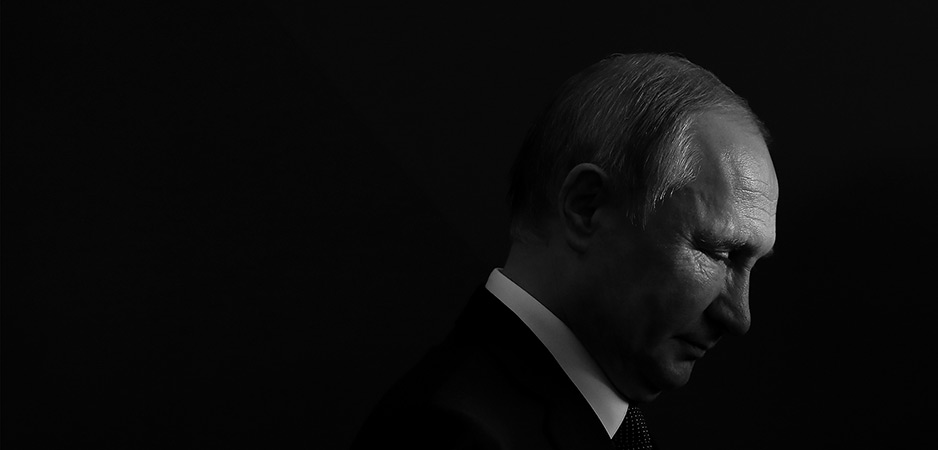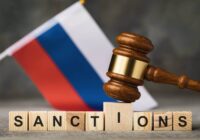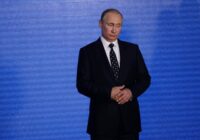The reorganization of power has begun in Russia. This process is also referred to as the solution to the so-called “problem 2024” — the year that marks the end of Vladimir Putin’s last term as president. By law he has no right to run in the next election, since Russia’s Constitution stipulates a limit of two consecutive terms in office.
In 2008, at the end of Putin’s first presidential cycle, he passed his post to then-Prime Minister Dmitry Medvedev for four years. At the time, Putin took over as prime minister but continued to lead the country from the sidelines, in a set-up that became known as the “tandem.” However, at the end of the 2012 election everything had already returned to its place: Putin had been reelected president, and Medvedev was made the head of government as prime minister. In Russian politics, this maneuver is known as “castling” — an analogy with chess.
After the second coming of Putin, the presidential term in Russia was increased from four to six years, granting the head of state 12 years in power. During this time, the annexation of Crimea, the war with Ukraine and the ensuing Western sanctions, as well as Russia’s increased involvement in the Syrian Civil War, took place. The only thing that remained unchanged was Putin’s power. He quietly won all the country’s elections, leaving all rivals far, far behind. Technically speaking, there is some political opposition in the country, but none of the real opponents of the regime are allowed to engage in politics.
However, time is running out, and Putin will soon have to step down again formally as president. So, the time has come for the Kremlin to decide what power structures in Russia will remain after 2024. Journalists and political experts predicted various scenarios of the power transfer, such as the unification of Russia and Belarus to create a “Union State,” as well as some sort of new castling. However, everyone was sure of one thing: Putin can’t simply retire. Too much power is concentrated in his hands to just leave it all behind.
Message to the Federal Assembly
The transfer of power began unexpectedly. The President’s annual address to the federal assembly was scheduled for January 15. The country expected that Putin would talk about the economic situation and social issues. Russians have been growing increasingly weary of hearing about war and geopolitics. The president, aware of the popular mood, began his speech by announcing an increase in child allowances, and support to teachers, doctors and young families. He even promised free lunches to schoolchildren.
However, the second part of his speech was entirely devoted to the redistribution of roles among the branches of power in the country. In fact, Putin proclaimed the beginning of constitutional reform.
The president’s statements provided a rough idea of how events will unfold after 2024. The main idea is that Russia will remain a presidential system, but the role of the prime minister and government will be strengthened. The head of the government will be proposed by parliament — no longer by the president, as it is now, but the president will still be able to dismiss the appointee. The federation council will have the right to remove judges from office, and officials and judges will be forbidden to hold a second citizenship or residence permits in other countries. Only those who have lived in Russia for the last 25 years will be eligible for the presidency.
In addition, they must never have held a residence permit of another country or a second citizenship. Putin also announced that Russia would no longer grant precedence to international conventions or court rulings over its own laws.
President Putin also spoke in favor of strengthening the role of governors and the federation council, which currently have rather nominal functions. He also suggested removing the term “consecutive” from the two-term limit on holding office. Putin recommended that all his ideas be enshrined in the constitution. In Russian political terms, a “recommendation” by Putin means direct orders.
The president concluded his speech on a dramatic note, saying that renewal and the change of power are an essential condition for progressive evolution of society and stable development. He preferred not to talk about his role in his imagined Russia of the future. However, one thing is clear: He has taken the necessary steps to secure his own political future in the country. Since he can no longer remain president, he needs another powerful position that will allow him to exercise the full extent of his power.
Government Resignation
No one can say whether Dmitry Medvedev knew that January 15 would be his last day as head of government. He and the entire Russian cabinet resigned only a few hours after Putin’s address.
The president proposed the candidacy of a new prime minister that same evening: Mikhail Mishustin, the country’s chief tax collector. His name says nothing to the average man, as he only appeared on English Wikipedia after the new appointment. However, Mishustin is no novice in Russian politics. He is seen as a reformer, an expert in modern technology and a keeper of secrets for many Russian officials. The post of chief tax officer is a police post, with all its consequences.
Mishustin doesn’t have much popularity, but does he really need it in his new position of power? Prime ministers in Russia are usually the fall guys. They are responsible for all failures of the government in order to shift responsibility from the president, who is busy with geopolitics and global issues. Nevertheless, Russia’s parliament approved Mishstin’s appointment without much hesitation.
As for Medvedev, he will now become deputy head of the security council. This new position was invented just for him. For the former prime minister — the second most powerful person in the country — such a transfer doesn’t exactly mark a sign of success. However, this impression might be premature. The head of the security council is Vladimir Putin himself. It was the security council, not the Ministry of Defense, that was responsible for the Crimea operation.
For Medvedev, who has mainly been involved in matters of Russia’s economy and industry in recent years, this is an atypical position. Therefore, it is hard to say for sure whether it is a demotion or another strategic maneuver. For Putin, Medvedev is still a special person. He once entrusted him with the power over the country, and Medvedev gave it back without question. Putin values such people, as loyalty is the most important quality in his eyes.
What Happens Next?
A referendum on changing the constitution could potentially take place in September. Journalists and analysts are desperate to predict Russia’s future. Only one person knows for sure what awaits the country in 2024 — Vladimir Putin, and he is in no hurry to reveal his cards. A referendum on the constitution, parliamentary elections in 2021 and a full four years before the end of his current presidential term are still ahead of him.
For example, by that time the next US president will have already been elected to replace the one who came into power in 2020. The only thing we can state with certainty is that Putin is not going anywhere. Perhaps he will no longer be addressed as president, but he won’t stop ruling Russia. Now he is setting the scene for a new role. More precisely, you could even say he is forming a parallel government, a system within a system.
Perhaps he’ll take over as prime minister? It’s doubtful. Officially Putin doesn’t even have a political party. In the last election, he ran as an independent, unwilling to be associated with any political bloc.
Maybe he rewrites the constitution and stays for a new term? Theoretically speaking, it’s possible. Recent events have shown that the Russian Constitution is subject to amendment and can rewritten to suit the political ambitions of the ruling class. If a new constitution brings in a new order and new rules allowing Putin to run again, this would potentially means two more new terms and another 12 years of Putin. However, in this case, he will never get rid of the reputation of a dictator — even formally.
Maybe Putin will concentrate all the powers in the newly created state council? This is the more likely scenario. For good reason, he seeks to enshrine this office, which will allow him to oversee the various sectors of government and the direction of the country’s foreign and domestic policy, in the constitution. Putin has four years to give the council the power it needs. It looks like the president will learn from neighboring Kazakhstan, where Nursultan Nazarbayev, who ruled his country for almost 30 years, voluntarily moved to the position of chair of the security council. In fact, Nazarbayev had become a local Ayatollah Khameini — Iran’s supreme leader — without whom no meaningful decision can be made. Putin may indeed embrace the role of the father of the nation.
Most likely, Putin is looking for a position where he could influence key decisions in the country, but not be in the foreground. In this case, it is no longer so important who becomes the new president of Russia. Maybe Dmitry Medvedev again, or someone else. Whoever it is, the country will continue to be ruled by Putin and his entourage. The same people will remain in power and will only swap their official titles. In this sense, Russia is beginning to increasingly mirror China, where it is impossible to engage in politics if you are not a member of the Communist Party. The only difference is that in Russia, it’s Putin’s party, and the country’s opinion has no meaning.
*[Correction: An earlier version of this article mistakenly referred to the state council as federation council in the last reference. This piece was updated on January 24, 2020.]
The views expressed in this article are the author’s own and do not necessarily reflect Fair Observer’s editorial policy.
Support Fair Observer
We rely on your support for our independence, diversity and quality.
For more than 10 years, Fair Observer has been free, fair and independent. No billionaire owns us, no advertisers control us. We are a reader-supported nonprofit. Unlike many other publications, we keep our content free for readers regardless of where they live or whether they can afford to pay. We have no paywalls and no ads.
In the post-truth era of fake news, echo chambers and filter bubbles, we publish a plurality of perspectives from around the world. Anyone can publish with us, but everyone goes through a rigorous editorial process. So, you get fact-checked, well-reasoned content instead of noise.
We publish 2,500+ voices from 90+ countries. We also conduct education and training programs
on subjects ranging from digital media and journalism to writing and critical thinking. This
doesn’t come cheap. Servers, editors, trainers and web developers cost
money.
Please consider supporting us on a regular basis as a recurring donor or a
sustaining member.
Will you support FO’s journalism?
We rely on your support for our independence, diversity and quality.






